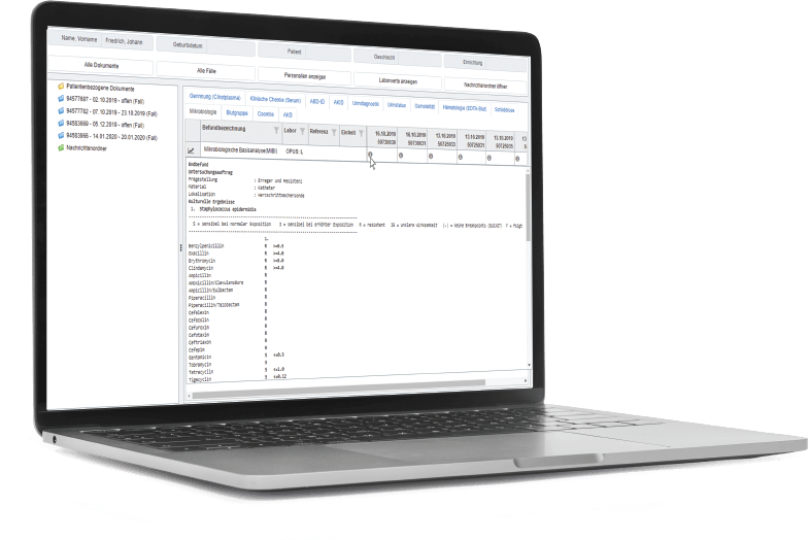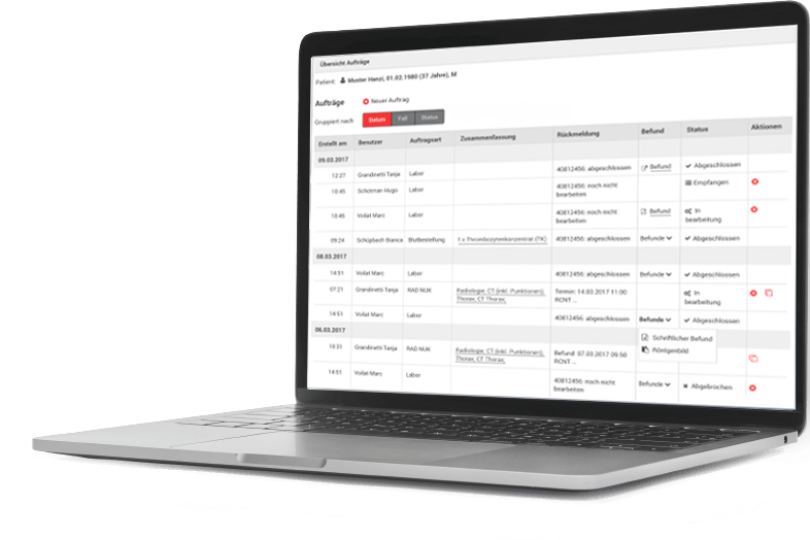Digitization means more than just implementing a paper form digitally. In order for users of digital solutions to derive optimal benefit, more is needed: mobile, flexible software that enables well thought-out work processes on a robust IT infrastructure. The Healthcare Ecosystem from Netcetera and the i-engineers delivers both. In the clinic cockpit, patient data and orders are managed and displayed in one place, while the underlying health engine serves over 100 interfaces and simplifies and consolidates the integration into the existing clinic IT.
From the challenge to the solution to the exemplary implementation at the University Hospital Basel: We explain how the digital clinic workplace simplifies processes and thus frees up valuable time and resources.
The challenge of digital transformation in hospitals
Over the decades, hospitals have accumulated many different applications. The result is a high degree of process fragmentation: while one department already uses digital forms, another still orders on paper. Appointment bookings run through different systems depending on the ward or department. This increases the coordination effort required to ensure smooth day-to-day hospital operations.
The many different processes also prevent the rapid integration of new software that is directly tailored to the needs of a specific role or employee group. In addition, there are different user interfaces that make familiarization and system changes difficult. This leaves no room for individual digital workplaces.
A modern clinic thoroughly cleans up this mess, brings systems together, standardizes operation and thus improves work processes. This ensures time and financial resources for the hospital's core task: successfully treating patients.
Healthcare Ecosystem as a Service: Navigate easily through everyday hospital life with the cockpit for hospitals
A hospital is a complex and sensitive organism. Errors or delays in the operational process result in serious consequences. Therefore, any intervention in the hospital's IT systems should be "minimally invasive" to exclude side effects.
The expert team of Netcetera and the i-engineers, together with the University Hospital Basel, have designed the product "Klinik-Cockpit" as a simple entry point into the daily work routine. Just as a pilot controls and monitors all processes and functions of his airplane from the cockpit, the Klinik-Cockpit centralizes the clinic and patient view in one digital place.

